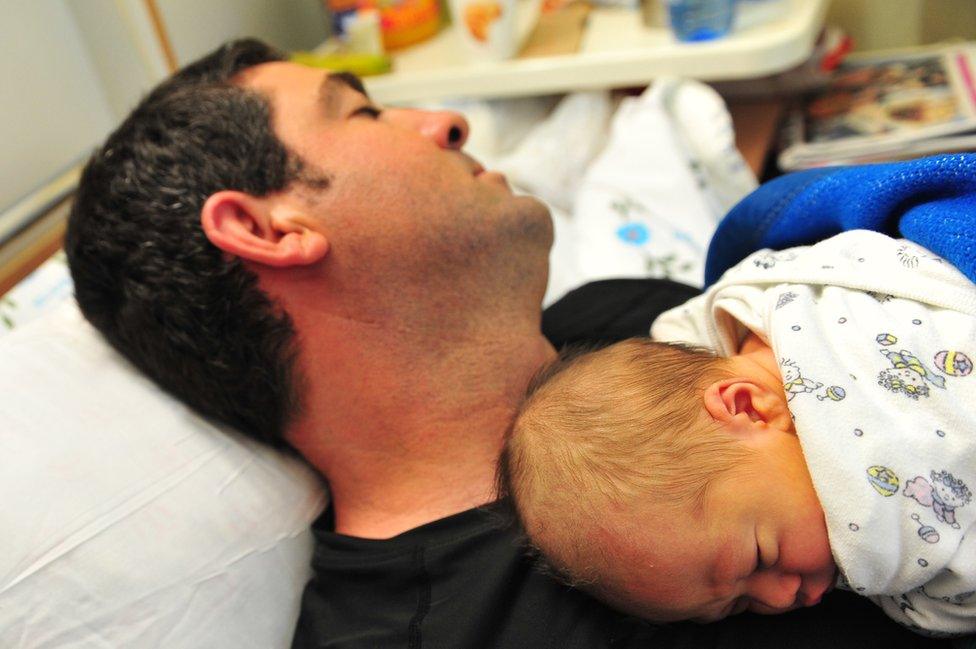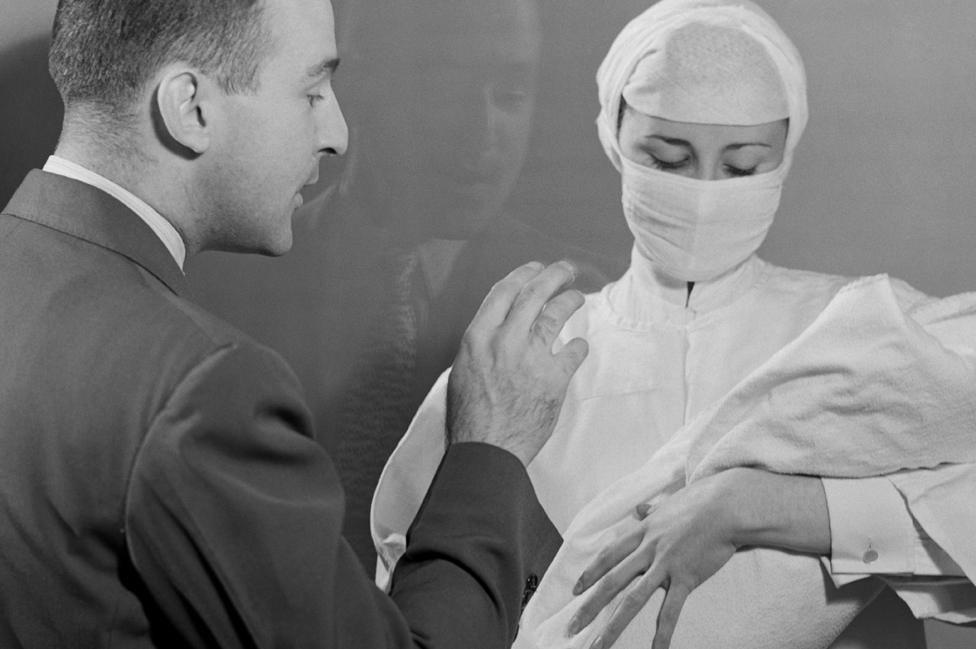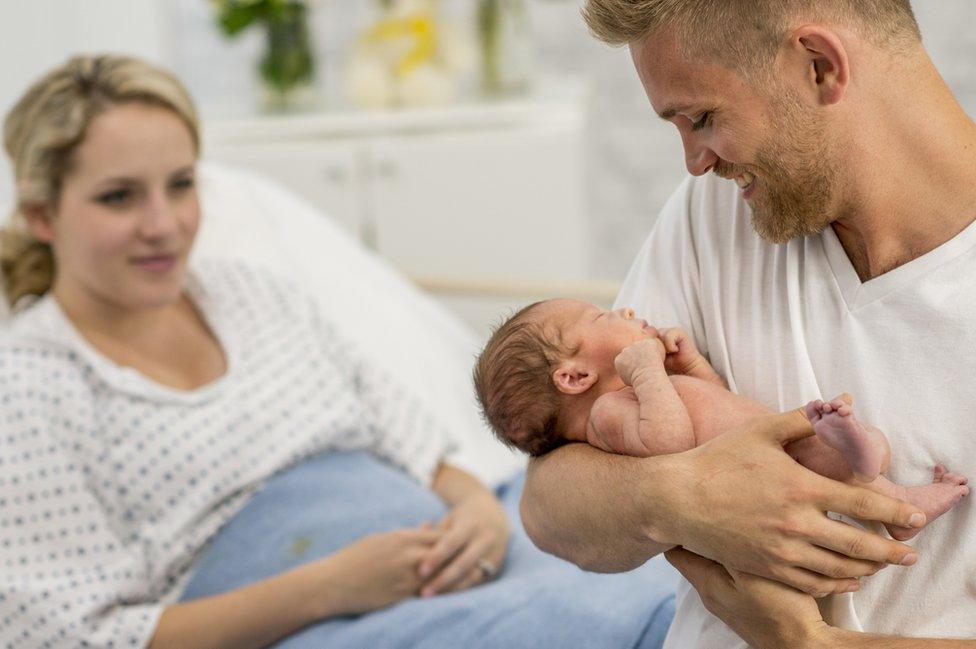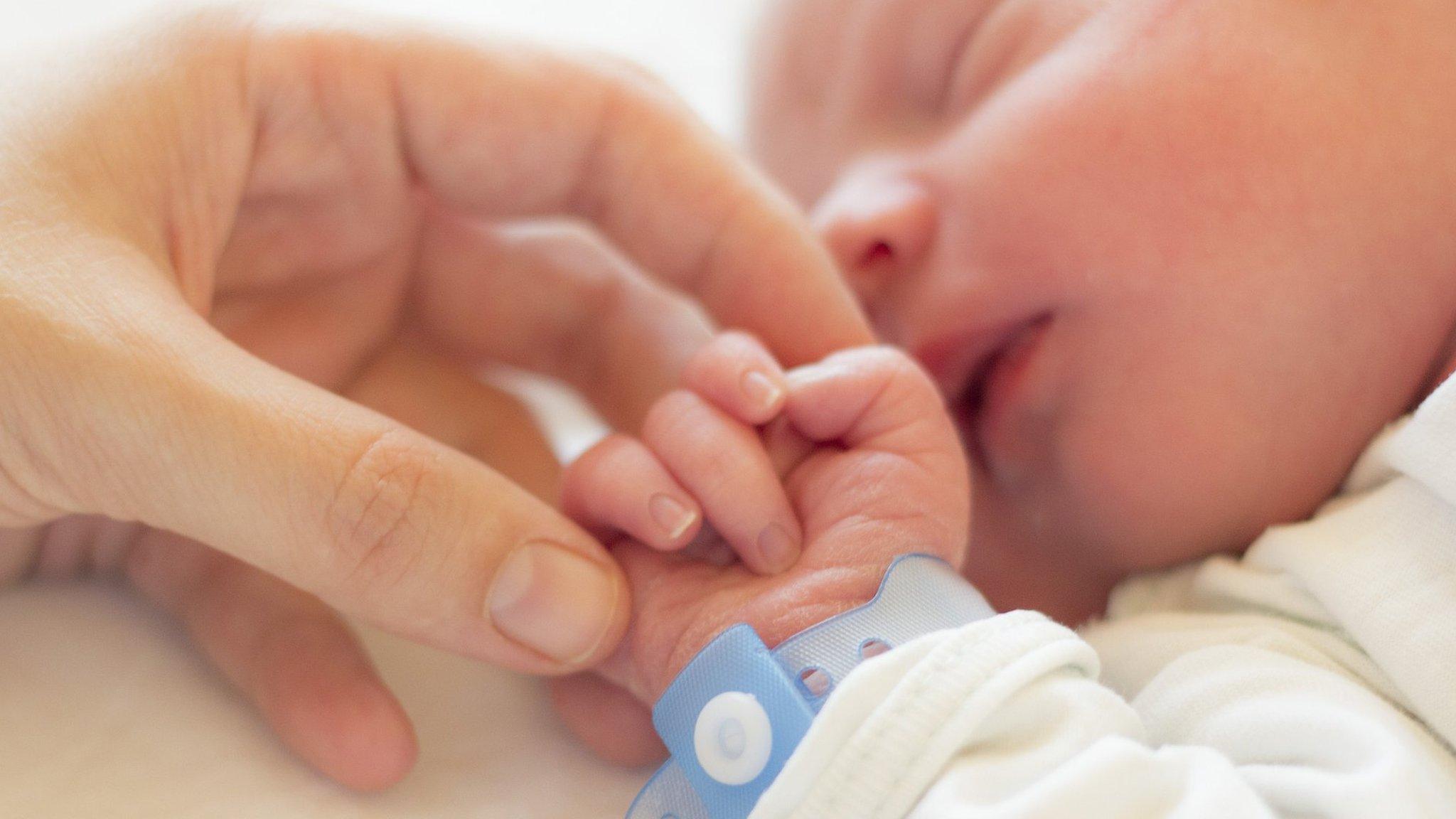Maternity ward dads: Kick them out or welcome them in?
- Published

Not too long ago the appearance of a dad in a labour ward would prompt immediate shooing away by a stern midwife.
These days dads are mainly expected to be part of the birth process.
Midwives in Scotland have, in the last week, expressed polar opposite views on the role and the behaviour of partners in the maternity ward.
The result is a raging debate over what a man's role should be in the hospital after the magic moment of delivery.
Earlier in the week, midwives at Edinburgh's Royal Infirmary launched an attack on male partners, external by complaining to NHS Lothian about fathers of new babies staying overnight in the hospital.
They said it was putting strain on staff who claimed fathers "treat the ward like a hotel".
'Mums rated fathers' support'
Examples given were sharing beds with their partners, ordering takeaways and using staff kitchens.
It was also claimed new mothers were too embarrassed to breastfeed or get changed because there were so many men staying at the postnatal unit.
However, another hospital has taken the opposite view that partners should be catered for so they can support the new mothers.
The postnatal wards at Ninewells Hospital in Dundee have bought 38 "Lazyboy-style" reclining chairs for fathers to sleep on and will provide tea and toast and kitchen facilities for those who want to stay.
The move to encourage new dads to stay overnight is part of the Scottish government's guidance on making neonatal and maternity care more inclusive of fathers under the Best Start policy.

In the 1950s, a father was very much on the outside of the process
All units are urged to take a flexible approach to the presence of partners, to ensure that families can stay together, with suitable accommodation being provided and facilities to enable bonding to take place.
Donna Brough, the senior midwife at the pioneering Ninewells project, found a bit of resistance at first, but staff now understand the benefits.
She told BBC Radio Scotland's Mornings with Stephen Jardine: "It came from some feedback we got on how women felt when their partners were asked to leave.
"It resonated with me when women said they felt alone, and felt they didn't have the support they wanted - they really rated the support of their partner highly and I felt it was important to listen to them."
There was concern over what the presence of more partners would mean for the running of the ward.
Ms Brough said: "The issues raised here with midwives on our wards were around security, privacy and facilities. However, I spent a lot of time talking to staff and we worked closely with Fathers' Network Scotland to put some education in place. Once the midwifery teams understood why it was important for bonding and fathers' confidence, they became much more on board."
She added: "We have to embrace family-integrated care. We know the benefits to the baby, the family, the mum's mental health and the dad's mental health."
'I felt guilty'
Chris Miezitis from Fathers Network Scotland (FNS) said: "Families deserve to have the choice. We can't exclude fathers at a time when their partners and babies needed them most."
New dad Kieran Brannan welcomed Scotland's first dad-friendly ward at Ninewells.
He was asked to leave the hospital at 03:00 when his wife Chloe returned to the ward after giving birth to their daughter Ella.
"I felt guilty I was leaving Chloe on her own to look after the baby when she had been up for 26 hours.
"Chloe had an epidural and the baby was crying in the night. She couldn't lean over to get the baby and she had to wait for someone to come and lift her out. I could have been there to help and get her right away."

Fathers can provide help and support, bonding and relieving pressure off staff
New mother Nadine Hawkins thinks it could help overloaded ward staff.
She said: "After the birth I was quite sick for around six hours and couldn't hold the baby or do anything myself. We were lucky and were given our own room, so my husband stayed both nights which gave us such a positive experience.
"It meant he was on hand if I needed anything. And it saved us putting pressure on the staff by buzzing for things that weren't necessarily medical."
Alex McMahon, nurse director of NHS Lothian, said: "Fathers, partners and family members should be encouraged and supported to become an integral part of maternal and newborn care."
- Published14 February 2019
